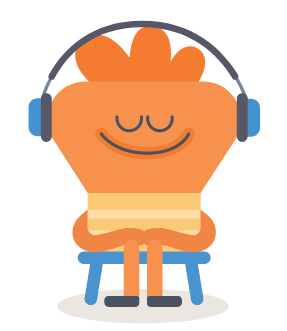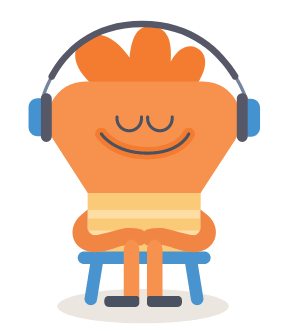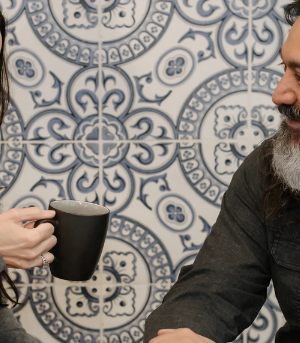-
×
 Chris Howard - Wealth Propulsion 30 Days Challenge Seminar Recording
1 × $35.00
Chris Howard - Wealth Propulsion 30 Days Challenge Seminar Recording
1 × $35.00 -
×
 Joshua Pompey – The Real Online Game
1 × $48.00
Joshua Pompey – The Real Online Game
1 × $48.00 -
×
Chris Parsell – Product Design Course
1 × $182.40
Headspace – Guided Meditations
$70.00 Original price was: $70.00.$23.75Current price is: $23.75.
When starting out, having an expert lead you through the basic steps of your meditation practice is recommended. Whatever skill we are learning in life, File size: 5.73 GB
Headspace – Guided Meditations
When starting a meditation practice, the first question to ask is if you want it to be guided or unguided. The preference is going to differ from person to person, but before deciding what best suits you, it’s worth exploring what each option involves.
(Just want to meditate? Click the play button below for a mini-guided meditation, or keep scrolling to try your first full Headspace meditation.)
What is Guided Meditation?
Guided meditation describes a type of meditation led by a teacher, in person or via audio or video.
When starting out, having an expert lead you through the basic steps of your meditation practice is recommended. Whatever skill we are learning in life, having an experienced teacher we can trust and relate to is important. But when it comes to exploring the intricacies and subtleties of the mind, it is not just important but essential.
It’s always a good idea to first understand what we’re trying to achieve through meditation before we embark on what is a journey of a lifetime. In a traditional meditation, meditation students are first taught how to view the contents of the mind and how best to approach the different exercises, to know how to get the best from their practice. Next, they are taught how to practice meditation, to become more proficient. Then comes the integration — learning how to fold the calm and clarity developed during meditation into everyday life.
Get immediately download Headspace – Guided Meditations
In a guided meditation, a narrator or teacher explains the dynamics of the mind and how it’s likely to behave during meditation. (This is the approach.) The teacher may also explain meditation techniques. (This is the practice.) Finally, the teacher may explain how to take these techniques into everyday life. (This is the integration.)
Where to Experience Guided Meditation
app headspace guided meditation – image
Instructional apps
Digital apps offer the opportunity to meditate with an expert via audio or video. In the Headspace app, most meditations are guided by co-founder and former Buddhist monk Andy Puddicombe. Andy offers exercises that incorporate elements of both an ‘insight’ meditation (a clear awareness of what’s unfolding as it unfolds) and a ‘calming’ meditation (cultivating clarity and calm by using an object of focus, such as the breath or a visualization). These techniques ensure that both awareness (of the present moment) and compassion (for yourself and others) are being trained at the same time.
Hs_everyone_1
Local meditation classes
A quick Google search can offer information about local meditation groups that meet regularly. For some people, meeting like-minded people can be the key to cementing a meditation habit. Like an instructional app, most local meditation groups and classes are led by an experienced teacher or practitioner who can offer guidance, insight, and periods of silence. The style of meditation will likely vary based on who leads the class and the kinds of styles or schools of meditation they have studied.
What is Unguided Meditation?
Unguided meditation (or silent meditation) allows the practitioner to customize the ways in which they’d like to meditate on their own, including duration, space, and degree of silence. During unguided meditation, you typically meditate without any external tools. Our Meditation 101 page offers basic tips for setting up an unguided meditation practice: Find a quiet space with minimal interruptions; look for a comfortable place to sit, usually in a chair or on the floor; choose a posture that feels okay in your body; and begin to breathe deeply, in through the nose and out through the mouth.
In an unguided meditation practice, the practitioner meditates alone without someone else explaining the process. A solo practitioner might choose to use some of the techniques they’ve learned in guided meditations, like visualizations, mantras or body scans. For this reason, it can be useful to start with guided meditation if you have no background in the practice. Alternatively, some people might choose to simply sitting in quiet, paying attention to their body and thoughts for a set period of time.
Guided vs Unguided Meditation
Choosing between guided and unguided meditation is entirely based on personal preference. Some people will prefer guidance for a long time while others might not want guidance at all. We can think of guided meditation as having an experienced instructor alongside you when learning to drive: They aren’t just there to give guidance — they also provide encouragement and support!
Most Headspace users say they feel more comfortable with guided meditation when first learning the practice. As your confidence and skills progress, you may well dispense with the guided lessons and go it alone. Or you may alternate between guided and non-guided meditation. Ultimately, it’s subjective. Whilst some people like the idea of driving off into the distance alone, others simply prefer traveling the journey with someone accompanying them.
Get immediately download Headspace – Guided Meditations
DISCLAIMER: This page features general research on meditation, and any study using the Headspace app is noted as such. The Headspace science team is committed to conducting research on our product to ensure it delivers benefits to our users. While our research is in progress, it’s important to note that Headspace is not intended to diagnose, treat, cure, or prevent any disease or medical condition.
hs4w – stress-less
The Benefits of Guided and Unguided Meditation
Both guided and unguided meditation offer many proven benefits for mental and physical health. General meditation and mindfulness research shows meditation can change the actual structure of the brain. People who practice meditation also report lower levels of stress and anxiety, depression and chronic pain. Consistent meditators who have trouble sleeping may sleep better and demonstrate improved immune function. In a study done with the U.S. Marines even showed that practicing meditation could help them be more focused in the field.
Scientist Characters Groupv1 copy
Research (conducted in third-party studies) shows that guided digital meditations can be just as effective as in-person meditation classes for some people. People who meditated with apps like Headspace showed significant improvements in well-being and job strain. For some people, building a consistent meditation habit becomes easier when the tools for meditating exist in an easy-to-grab app; with an app, you can fit meditation into any schedule or space.
hs-for-home
Is unguided meditation more effective than guided meditation?
As of now, there is no scientific evidence to suggest that one is better than the other. Yale researchers studied many types of meditation and found that people experienced increased calm and decreased mind wandering across all kinds. Some research does show, however, that attention and emotional control are highly stable when you’re in full silence during specific meditation types.
It’s important to remember that there is no such thing as “good” or “bad” meditation. Both roads to a meditation practice — guided and unguided — will get you to the same destination. If you’re trying to bring more awareness to the current moment by finding a quiet moment, you’re off to a good start.
complete-access
Guided and Unguided Meditation With Headspace
The Headspace app offers both guided and non-guided options, and some combinations of the two: Using the Pro series, users can train themselves to sit in longer periods of silence using meditations that offer silence and some insight on the various obstacles that can arise when practicing without a guide. It’s silent meditation and everyday support. You can also choose a non-guided option in the Classic singles section.
Headspace guided meditation
0:00
9:57
Why People Choose to Meditate
general meditator
For many people, meditation has become a tool for managing stress. For some, it helps to promote improved health), including a better quality of sleep. For others, it helps them get some ‘headspace’ — that underlying sense of peace, and that feeling of contentment, no matter what they’re dealing with in life. When we’re in a healthier place mentally, then we’re bound to interact with others in a more positive way, meaning meditation can benefit our relationships, too.
What is mindfulness
Meditation carries with it several inaccurate myths, including the belief that the practice involves “emptying your mind,” or finding an escape from thoughts or problems. The reality is that there is no escape from thinking—that is the mind’s nature. The skill is to step back and see our thoughts more clearly, without getting caught up in all the mental commentary. We may never change our thoughts, but we can change our experience of those thoughts.
hs4w-life-satisfaction
When we meditate, we’re cultivating an awareness of the present moment. We’re training the mind to better understand how and why we think and feel the way we do, with the aim of fundamentally transforming our experience, and perspective, of everyday life.
Be the first to review “Headspace – Guided Meditations” Cancel reply
Related products
Sale!
Other Courses
Sale!
Sale!
Other Courses
Sale!
Other Courses
Sale!
Other Courses
Sale!
Other Courses
Sale!
Sale!
Other Courses

 Chris Parsell – Product Design Course
Chris Parsell – Product Design Course 











Reviews
There are no reviews yet.